Search Results
Showing results 321 to 340 of 1106
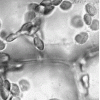
Magnifying and Observing Cells
Source Institutions
In this activity related to microbes, learners make slides of cells from an onion skin and Elodea (American or Canadian waterweed) to observe under a microscope.

A Simply Fruity DNA Extraction
Source Institutions
In this activity, learners extract DNA from a strawberry and discover that DNA is in the food they eat.
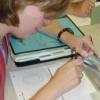
Mirror Image
Source Institutions
In this activity, learners investigate procedural memory.

Solar Water Heater
Learners work in teams to design and build solar water heating devices that mimic those used in residences to capture energy in the form of solar radiation and convert it to thermal energy.

Crime Scene: The Case of the Missing Computer Chip
Source Institutions
Learners use scientific processes to solve a crime. As they get clues, learners must create a hypothesis then adjust that hypothesis as more information is revealed.

Trash Talkin'
In this activity, learners collect, categorize, weigh and analyze classroom trash and discuss ways that engineers have helped to reduce solid waste.
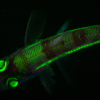
Illuminating Luminescence
Source Institutions
In this activity, learners compare and contrast different forms of luminescence by observing how chemiluminescence, phosphorescence, and fluorescence produce or emit light.

Geometry Construction: Polyhedral Playthings
Source Institutions
In this activity, learners create 3D geometric shapes using straws and pipe cleaners.
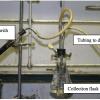
Investigating and Using Biomass Gases
Source Institutions
In this activity, learners will be introduced to biomass gasification and will generate their own biomass gases.
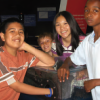
Size and Scale: Probing and Predicting
Source Institutions
In this quick activity about predicting (located on page 2 of the PDF under Where's Nano?
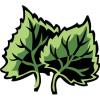
Determining the Amount of Transpiration from a Schoolyard Tree
Source Institutions
In this activity, learners calculate the number of milliliters of water a nearby tree transpires per day.

Insulators and Conductors
Source Institutions
In this activity, learners explore the concept of conducting or insulating electricity.

Make a Wire Critter That Can Walk on Water
Source Institutions
In this activity, learners make water-walking critters using thin wire, and then test how many paper clips these critters can carry without sinking.

Super Soil
Source Institutions
In this outdoor activity, learners make their own organic-rich soil. Depending on where this activity is done, learners will probably discover that their local soil is low in organic matter.
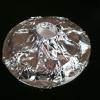
Mars from Above: Viewing Volcanoes
Source Institutions
In this activity, learners create volcanoes like those they have examined on Earth and Mars through images taken by spacecraft.

Tissue Paper Spray Art
Source Institutions
In this activity, learners observe color mixing and absorbency using colored tissue paper and spray bottles.

M&M's in Different Sugar Solutions
Source Institutions
In this activity, learners investigate whether having sugar already dissolved in water affects the speed of dissolving and the movement of sugar and color through the water.

The Shadow Knows I
Source Institutions
In this activity, learners will measure the length of their shadow from the Sun and compare it three to four months later.
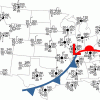
Drawing Conclusions
Source Institutions
In this weather forecasting activity, learners determine the location of cold and warm fronts on weather plot maps.

Environmental Chemistry
Source Institutions
In this activity with several mini experiments, learners explore the chemistry that helps scientists learn about the environment and how they can help save it.
